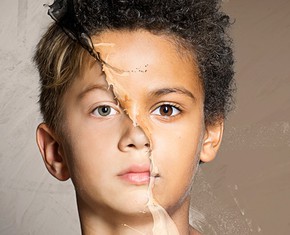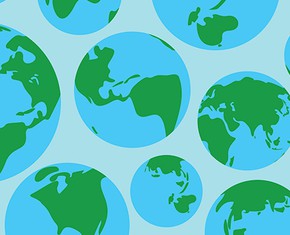The views expressed in our content reflect individual perspectives and do not represent the authoritative views of the Baha'i Faith.
A friend asked me a question recently that has stayed with me: “I was wondering what your mum would make of this situation and what her guidance would be for us all.”
My mother passed away and transitioned to the next world a few months ago, and I have been thinking about this question a lot. My mum always had a way of processing and making sense of the world. She could always find a way to see hope and light, even in the darkness.
I have found myself in many conversations recently about the importance of having hope in humanity’s ability to create a new system coming out of the COVID-19 crisis. I’ve been reflecting a lot on what my mum would think about everything that is happening right now.
There are many things that I am incredibly grateful to my mum for, but one of them is that she taught me the Baha’i Faith at an early age. This has helped me to have a foundation and a source of optimism through which to see the world and particularly in harder moments, a source of hope and vision.
Four main ideas indicate that this moment in time is a point of transition:
1. The Power of the Crumbling of the Old World and the Building of a New World
There is a passage from the Baha’i writings that has been resonating a lot with me recently. Shoghi Effendi, the Guardian of the Baha’i Faith wrote that, “We stand on the threshold of an age whose convulsions proclaim alike the death-pangs of the old order and the birth-pangs of the new.” This feels like such an apt description of our current reality.
2. The Importance of Shifting Away From Our Old Behaviors
In “The Promise of World Peace,” the Universal House of Justice, the global governing body of the Baha’is of the world wrote that we have to choose between “Stubborn(ly) clinging to old patterns of behaviour” or embracing “an act of consultative will.” The more that we can integrate this idea of needing to choose consultation into our worldview, the better off as a society we will be. By holding on to our previous ways of thinking about things, we will be unable to truly create new systems and ways of being and interacting with each other.
3. The Transition From the State of Adolescence to Adulthood
The Baha’i writings further diagnose that we are transitioning from a state of adolescence to adulthood. Shoghi Effendi wrote that, “The long ages of infancy and childhood, through which the human race had to pass, have receded into the background. Humanity is now experiencing the commotions invariably associated with the most turbulent stage of its evolution, the stage of adolescence, when the impetuosity of youth and its vehemence reach their climax, and must gradually be superseded by the calmness, the wisdom, and the maturity that characterize the stage of manhood.”
4. The Unification of the World
In many ways, what we are witnessing is the transition from a divided to a more united world. The Universal House of Justice wrote in 2017 that “The stresses emerging out of the long-term process of transition from a divided world to a united one are being felt within international relations as much as in the deepening fractures that affect societies large and small.”
A final passage from the Baha’i writings that feels relevant in these times comes from that same 2017 message: “The welfare of any segment of humanity is inextricably bound up with the welfare of the whole. Humanity’s collective life suffers when any one group thinks of its own well-being in isolation from that of its neighbours’ or pursues economic gain without regard for how the natural environment, which provides sustenance for all, is affected.”
This is more true than ever.
















Comments
Sign in or create an account
Continue with Googleor